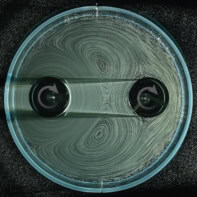This year’s Dirac Medal has been awarded to two theoretical physicists who have made pioneering contributions to our understanding of turbulence, which is generally agreed to be the outstanding unsolved problem in classical physics. Robert Kraichnan, who recently moved to Johns Hopkins University in the US, and Vladimir Zakharov, director of the Landau Institute for Theoretical Physics in Moscow, share the medal, which is awarded by the Abdus Salam International Centre for Theoretical Physics (ICTP) in Trieste. The winners were announced on August 8 - the anniversary of Dirac’s birthday.
Kraichnan and Zakharov were recognized for “their distinct contributions to the theory of turbulence, particularly the exact results and the prediction of inverse cascades, and for identifying classes of turbulence problems for which in-depth understanding has been achieved.”
Kraichnan has spent most of his career as a consultant, working for organizations such as NASA and the Department of Energy. His most profound contributions, according to the ICTP, have been his pioneering work on field-theoretic approaches to turbulence and other non-equilibrium systems, including his insights into the inverse cascade in two-dimensional turbulence. Kraichnan was also one of Einstein’s last assistants at the Institute for Advanced Study in Princeton.
Zakharov has worked on many problems in plasma physics, hydrodynamics and optics, and his main contributions to turbulence have been in the field of weak wave turbulence. He has taught many students, who now constitute the “Zakharov school”, and also holds a position at the University of Arizona in the US.
The Dirac Medal is to awarded to scientists who have made significant contributions to theoretical physics and mathematics, and in recent years it has recognized theorists working in cosmology, biophysics and particle physics.



